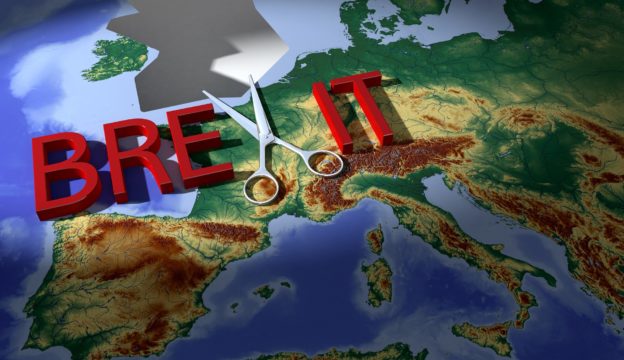by Arnaud Fendler
Following the British Parliament’s rejection of the exit agreement negotiated by Theresa May’s government and the European Union, the risks of a no-deal exit of the United Kingdom from the European Union have significantly increased. Even though it was given a new negotiating mandate on 29 January to obtain concessions on the post-Brexit situation in Northern Ireland envisaged in the agreement initially negotiated, the British Government is hastily preparing for an exit without an agreement.
From an international trade perspective, this means for the United Kingdom an outright restoration of its external borders and a return to the application of WTO law to all its trade.
Nevertheless, some emergency measures have been adopted in several sectors to ensure that trade between the United Kingdom and European countries would be as fluid as possible once the exit is going to be official. Focus on three of them.
1. PROVISIONAL INTRODUCTION OF A SIMPLIFIED IMPORT PROCEDURE
In order to facilitate the import of goods from the European Union, HM Revenue and Customs (HMRC) will temporarily authorize the use of a simplified import procedure for these goods. In practice, this will consist in allowing the submission of an import declaration, not at the time of crossing the border, but after it, as well as a delayed payment (a month maximum) of import duties and taxes due.
Thus, for example, the beneficiary of the procedure will be able to pay VAT on importation through monthly VAT declarations following importation, rather than when his goods arrive at the United Kingdom’s border. This will require the establishment of a duty deferment account.
To be noted: The importer benefiting from the reverse VAT clearance mechanism will not need a deferral account for the delayed payment of import VAT.
In order to benefit from this facility, operators must have an EORI number, and must register with HRMC as of February 7, 2019.
This transitional procedure will be regularly reviewed, and its termination will be phased in gradually, in order to allow beneficiaries to organize themselves to comply with the formal import conditions normally applicable to all third countries.
2. MAINTENANCE OF THE COMMON TRANSIT CONVENTION
After leaving the European Union, the United Kingdom will continue to apply the Common Transit Convention. The facilities offered by this Convention should facilitate the flows management from or to Ireland, which will thus be able to transit through the United Kingdom through the application of tools and concepts (NCTS, shipper/authorized consignee) already known to operators and professionals in the field of freight and customs clearance. However, this will have a financial impact, as the use of transit requires guarantees to be put in place.
3. IMPLEMENTATION OF A GENERAL EXPORT LICENSE FOR DUAL-USE GOODS DESTINED TO THE EU
The introduction of an Open General Export License (OGEL) for dual-use goods destined to the EU has been formalized on February 1st, 2019.
This applies to all properties listed in Annex I of Regulation 428/2009. The goods listed in Annex IV, which are currently subject to intra-EU transfers subject to authorization, do not fall within the scope of this general license.
This general license, which responds directly to the Union’s general export license for certain DUIs to the United Kingdom announced by the European institutions at the end of December 2018, will enter into force on March 29th, 2019, and its use will be subject to prior registration in the ECJU (Export Control Joint Unit) system.
In the perspective of a withdrawal without agreement, the adaptation of customs flows to the United Kingdom following the new conjuncture that would be created by an exit without agreement is more than ever a priority.
For this purpose, the DS Avocats customs department has prepared a free evaluation questionnaire. The answers will make it possible to identify and consider the most urgent decisions to make. We invite you to contact us if you are interested in this questionnaire.
***

